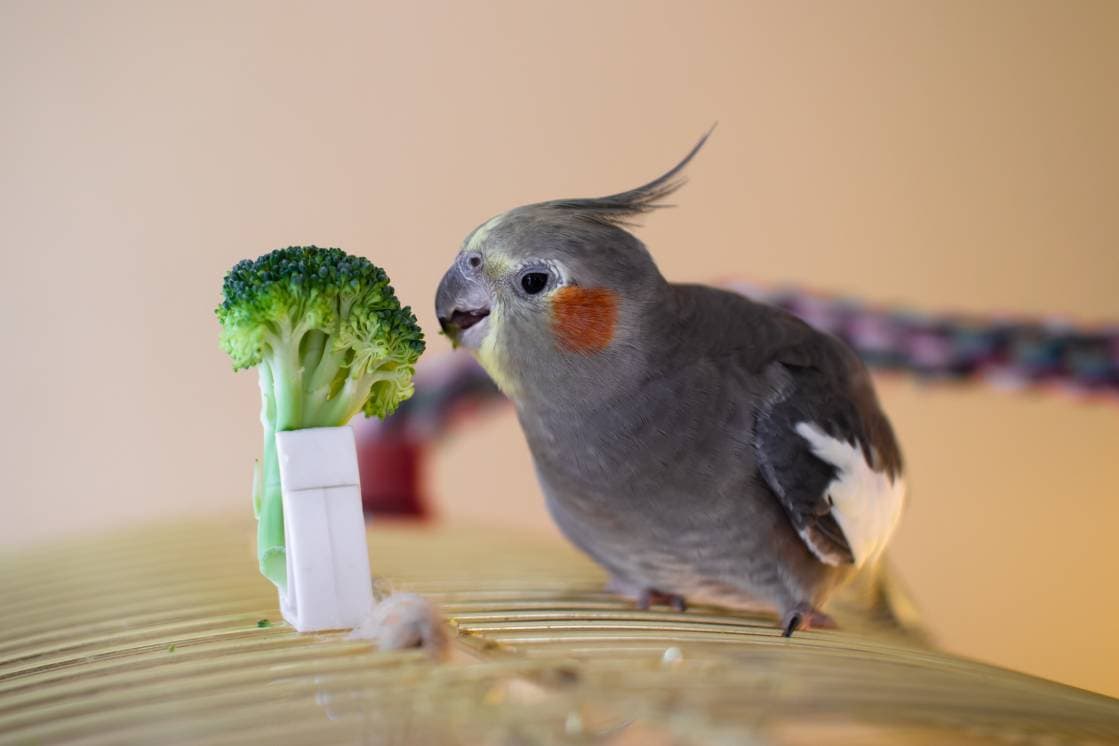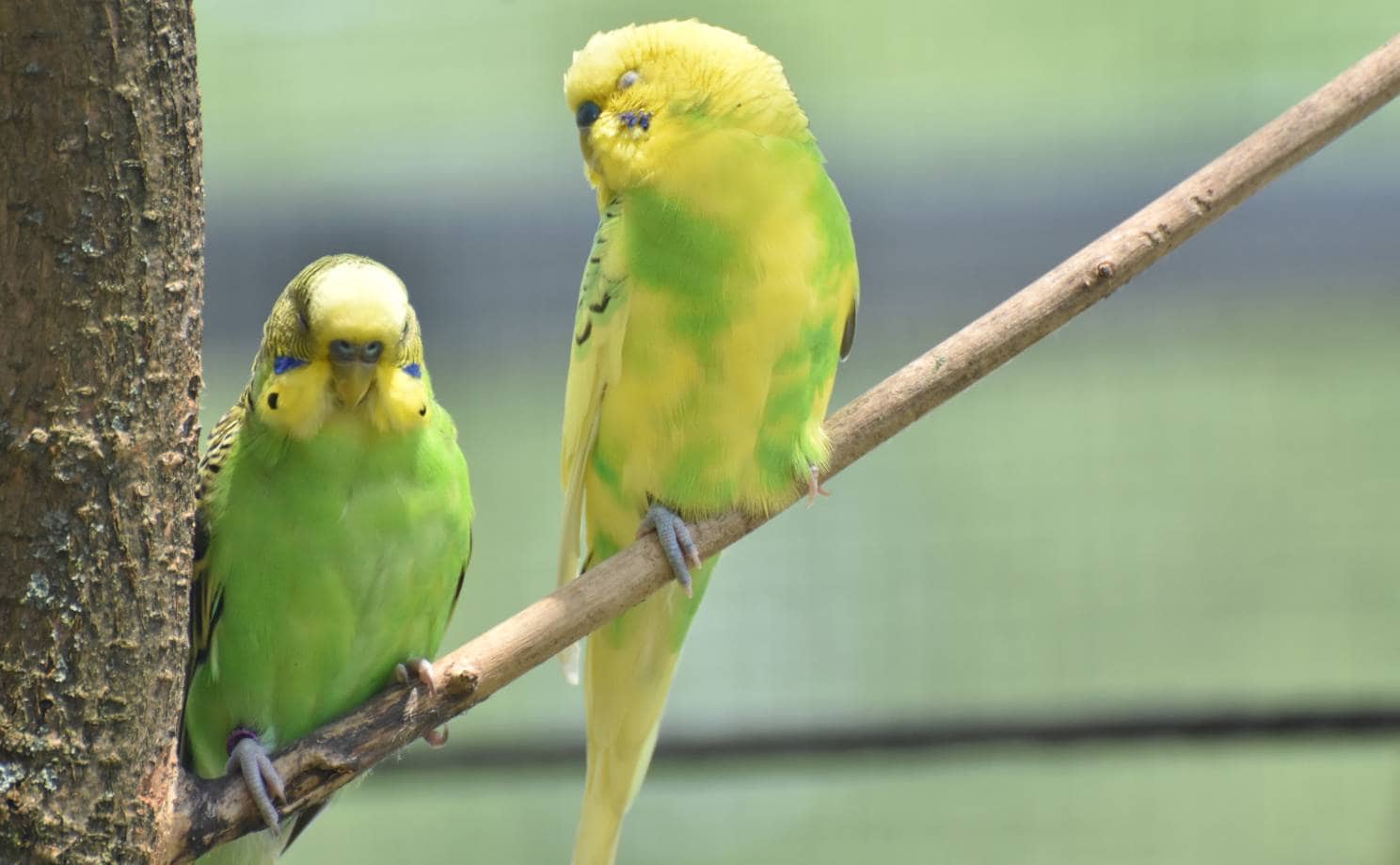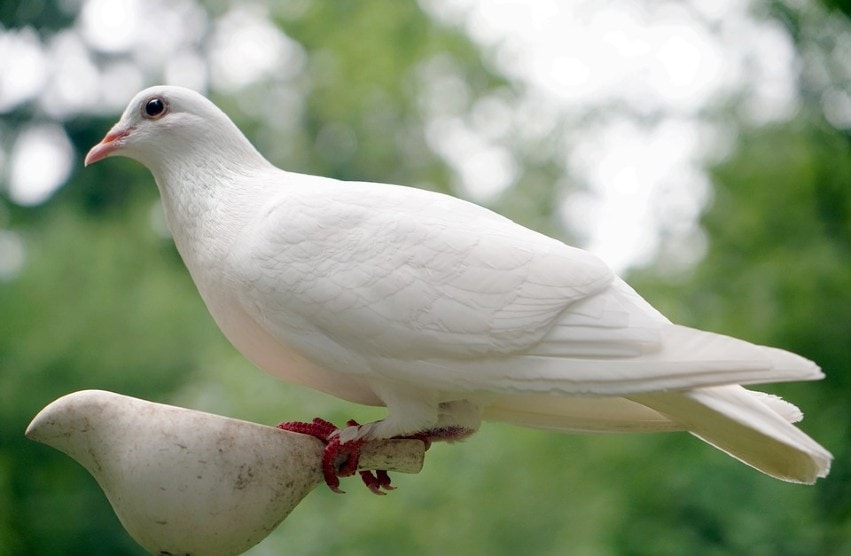
Disclaimer: This article has been reviewed for factual accuracy by a qualified veterinarian. The views and opinions expressed herein are those of the author and do not necessarily represent the views or opinions of the veterinarian.
Birds are common household pets, but not all species are popular. While parrots are typically the first bird people think of when they hear of someone with an avian family member, doves can make great pets for the right person.
Keep in mind that “doves” may refer to one of over 300 species of bird. While many do share some common traits, make sure you check the specifics for your chosen pet’s species. Read on for a general guide to keeping doves as pets, including which species are best companions and what you need to know to keep your new feathered friend happy and healthy.
Doves vs Pigeons
Most people have negative opinions of pigeons. They think that they’re dirty, disease-carrying, noisy, and invasive. Though they’re essentially harmless, the general public has waged war against pigeons.
Doves aren’t often thought of in the same way, but you might be surprised to learn that pigeons and doves belong to the same group of birds: Columbidae. There’s no scientific difference between a pigeon and a dove, though colloquial English often categorizes them as small. Birds called “doves” are generally smaller than “pigeons,” though this isn’t always the case.
The 2 Most Popular Dove Species Kept as Pets
1. Ring-necked Dove

| Scientific name: | Streptopelia capicola |
| Lifespan: | 10 to 15 years |
| Size: | 9.8 to 10.4 inches |
| Temperament: | Gentle, social, friendly |
2. Diamond Dove

| Scientific name: | Geopelia cuneata |
| Lifespan: | Up to 10 years |
| Size: | 7.5to 9.4 inches |
| Temperament: | Calm, social |
Pros & Cons of Keeping Doves as Pets
If you’re considering adopting a dove to keep as a pet, it is best to familiarize yourself with the pros and cons of such a venture.
Caring for Doves
If you’ve had pet birds in the past, you’re likely already familiar with the basics of bird ownership. However, doves have different care requirements than other commonly kept bird species, so you must educate yourself about your new pet’s unique needs well before you bring them home. Let’s take a look at some of the most important things to consider when caring for your new pet.
Food
The mainstay of a dove’s diet should be a species-appropriate balanced pellet. Seeds and grains are a good addition for birds with high energy requirements, but should never be the majority of the diet and must be fed in smaller quantities to more sedentary birds. Doves also need a small amount of indigestible grit in their diets because they eat their seeds whole, and the grit helps to grind them up in their stomachs. Keepers will need to provide their pets with oyster shell grit as a calcium supplement, especially during breeding.
You can also offer fresh fruit and veggies to add variety to your pet’s diet. Keep in mind that doves cannot chew their food well, so offer soft food or bite-sized pieces. Steer clear of onions, avocados, garlic, coffee, chocolate, and fruit seeds containing cyanide compounds (cherry, peach, apricot, apple) as they are toxic.
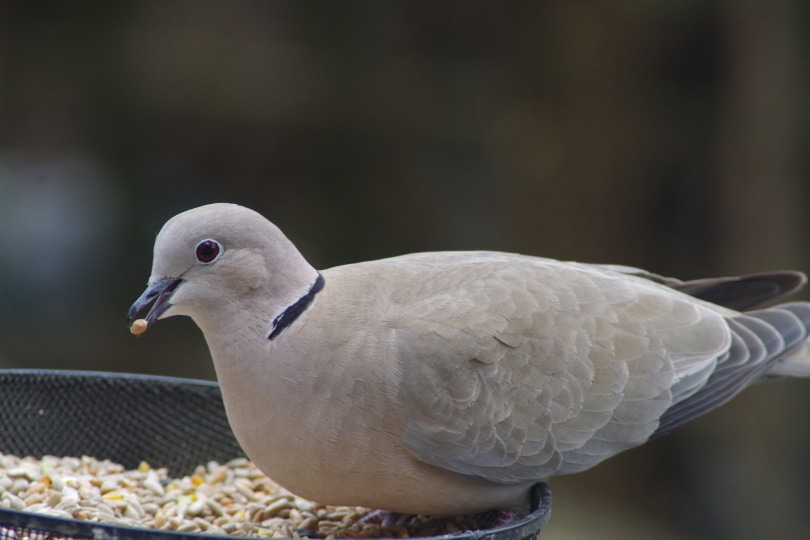
Housing
Doves require a cage that’s, at minimum, 24 x 36 x 36. Though, as with all bird species, the bigger the cage you can provide them, the better. Pay more attention to length and width than height. Doves cannot climb up cage bars like their parrot counterparts, which is why width is more important than height.
Indoor housing is better than outdoor housing but, if they must be outdoors, make sure to protect them from weather extremes and wild birds, predators and rodents which can harm them. Ensure your bird’s cage has plenty of perch styles of varying diameters to prevent foot fatigue and promote good foot health. They should also have a space to hide.
Clean the enclosure, including food and water dishes, regularly with soap and water.
Doves are very social birds and generally do well when kept in pairs. Be sure to adjust the cage size to account for more than one bird.
Enrichment
Doves require a fair amount of interaction to stay happy and healthy. If you don’t plan on keeping your doves in pairs, you’ll need to spend quite a bit of time daily with your birds to meet their socialization needs.
Doves enjoy bathing, so provide them with a shallow bath and mist them regularly. They also enjoy food-related enrichment activities, so provide foraging toys or make your own foraging trays to encourage mental and physical stimulation.
Health Care
As with most companion pets, you should take your dove to the avian vet annually for a wellness exam. Your vet may check for parasites, clip nails and wings as needed, and recommend vaccination. Doves are prone to several infectious diseases, including viruses (e.g. paramyxovirus), bacterial infections (e.g., Salmonella spp.), external parasites (e.g., mites or lice), and internal parasites (e.g., coccidia).
Other health conditions captive doves may be prone to include obesity and bumblefoot, an inflammatory or bacterial disease of the foot often caused by pressure sores.
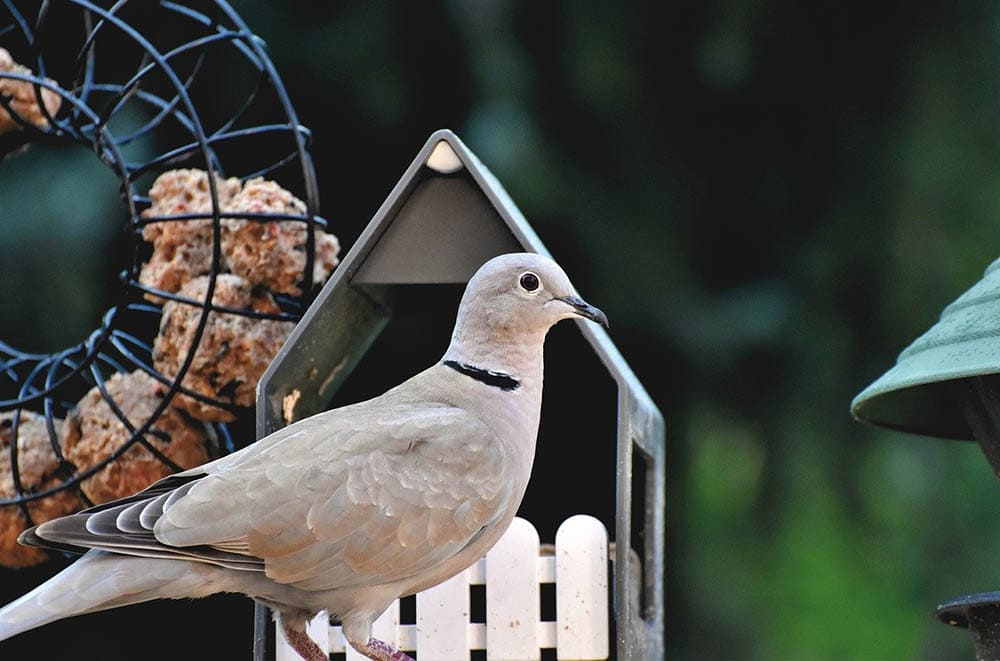
Dangers
All species of birds have very unique and sensitive respiratory systems. The following items are just a small list of things that should not be used in households with birds:
Final Thoughts
Doves can make great pets for the right household, but they’re not suitable for everyone. Because they’re quieter and easier to care for than other bird species (we’re looking at you, parrots!), they’re great for people adopting their first feathered family member. They’re not as noisy as parrots, so they’re ideal for people living in apartments or with roommates, but they’re generally best kept in pairs unless you plan to spend a lot of one-on-one time with them.
See also:
- Is an Ostrich a Bird? Facts & FAQ (With Images)
- How Long Do Pet Doves Live? Average Lifespan, Data & Care
Featured Image Credit: chrisjmit, Pixabay



